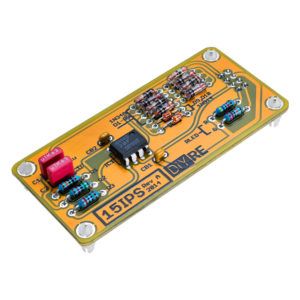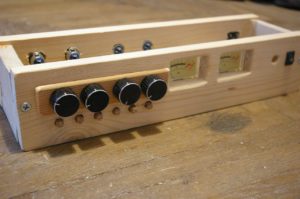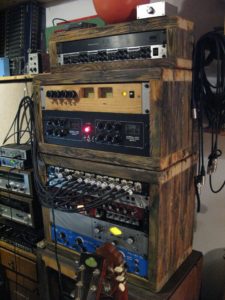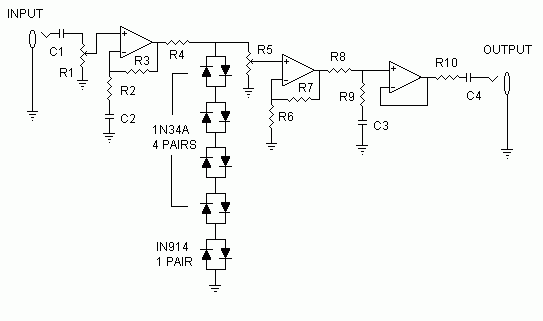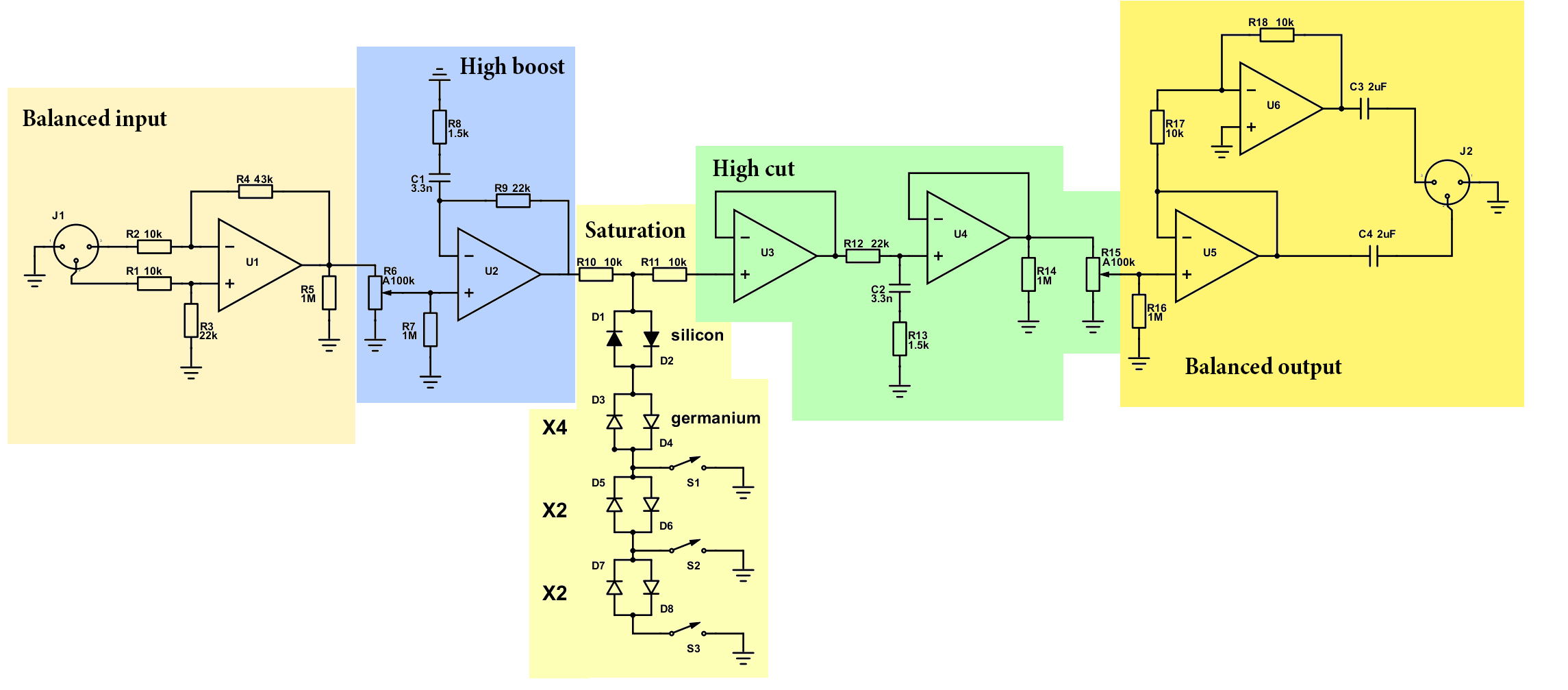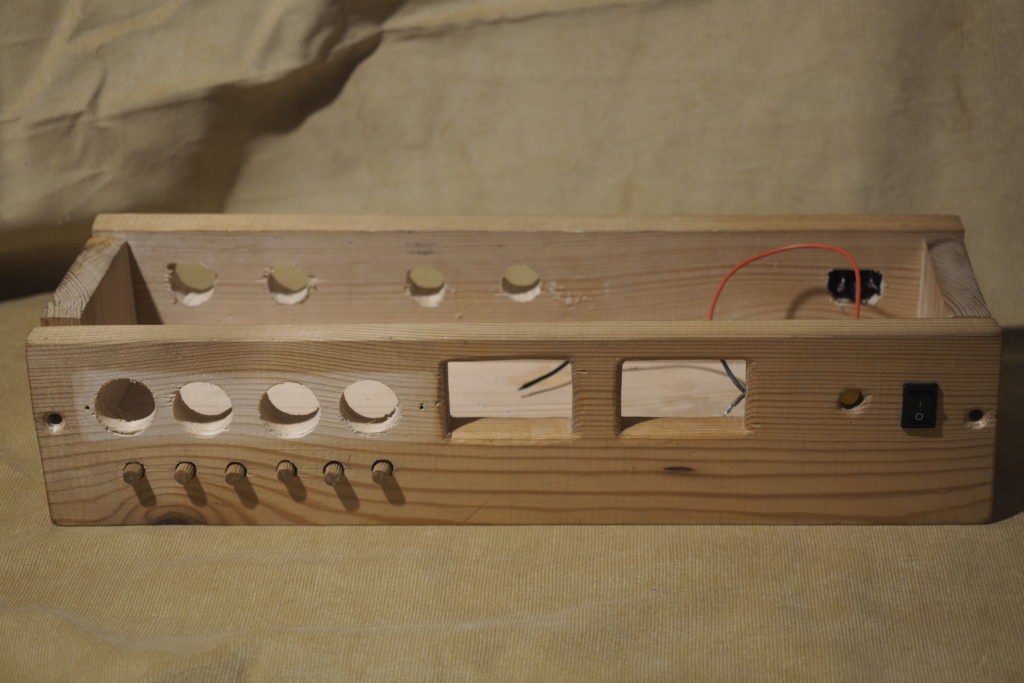Long time ago a friend of mine asked me if I could build something like this:
Link to the original product: https://www.diyrecordingequipment.com/products/15ips-colour
But we ended up with this wooden 19-inch 2-channel studio box.
When I first looked at the schematic I thought it was a joke.
The diode clipping stage looked like one in a distortion pedal. What could people possibly make out of it? A guitar overdrive pedal? Then I looked at a video from diyrecordingequipment.com and realized that maybe this very soft clipping effect could be useful for something. I came out with the following schematic. So let us look at the schematic more carefully.
A tape saturation limiter consists of: balanced input, a high-frequency boost, a soft diode limiter(saturation) high-frequency frequency attenuator that restores frequency balance back, and balanced output. The high-frequency boost is needed to make the effect softer. Low-frequency clipping sounds are very fuzzy. I’ve put the electric scheme inside a 19-inch wooden box. The device has 2 channels with the op-amp based balanced input and output. It is charged from 2 soviet vu-meters driven by К157ДА1 chip.
Here is the first version with germanium diodes made from transistors. Such diodes appeared to have a very different voltage drop and later I switched to normal germanium diodes. 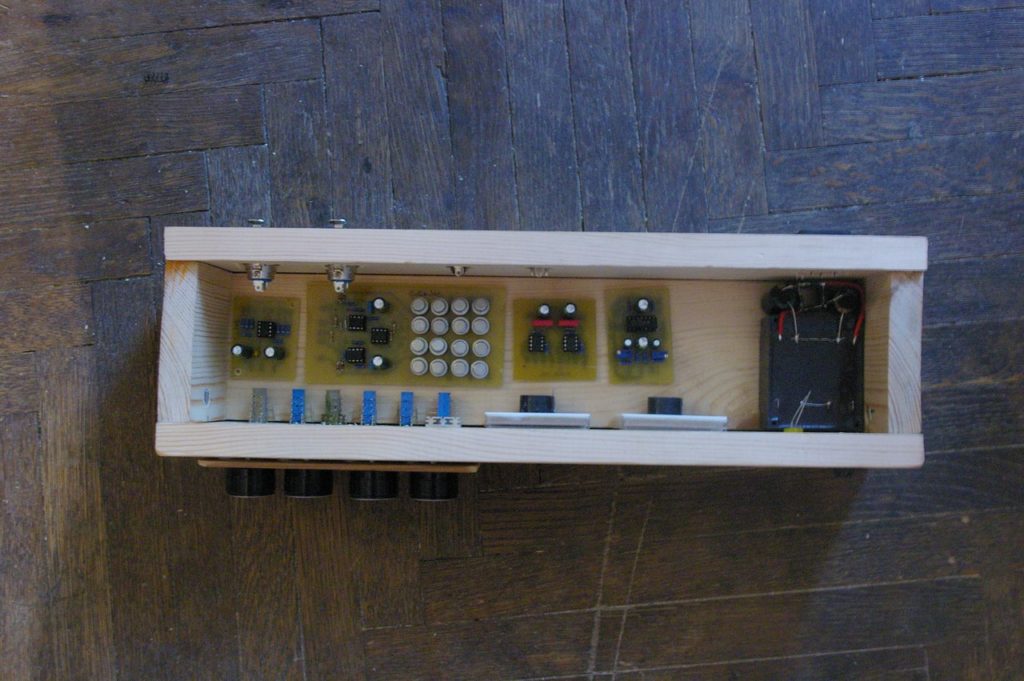
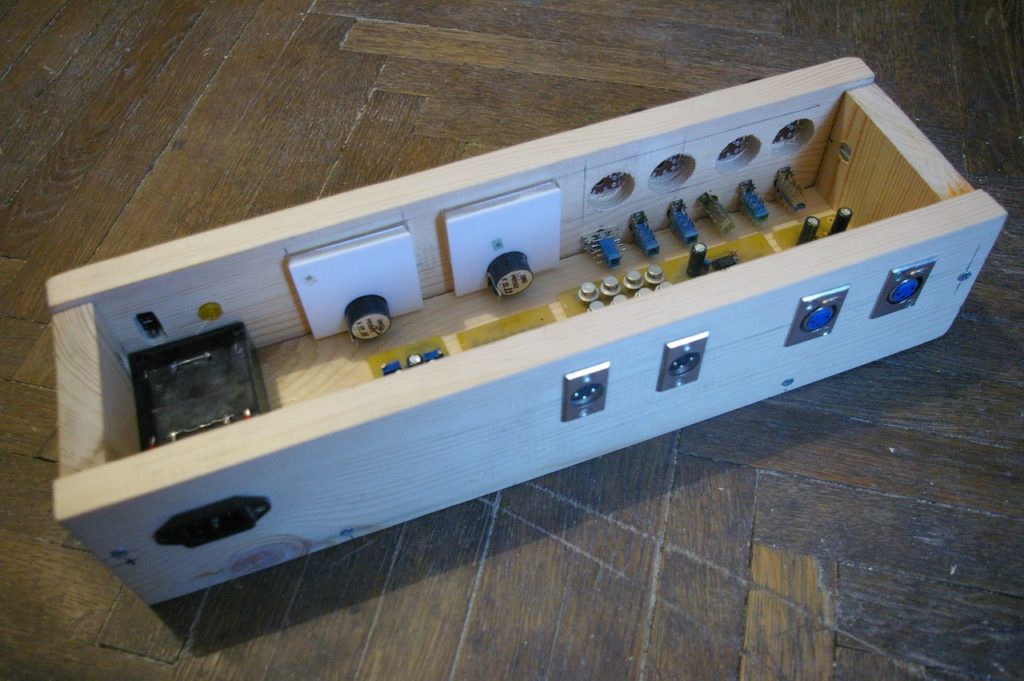
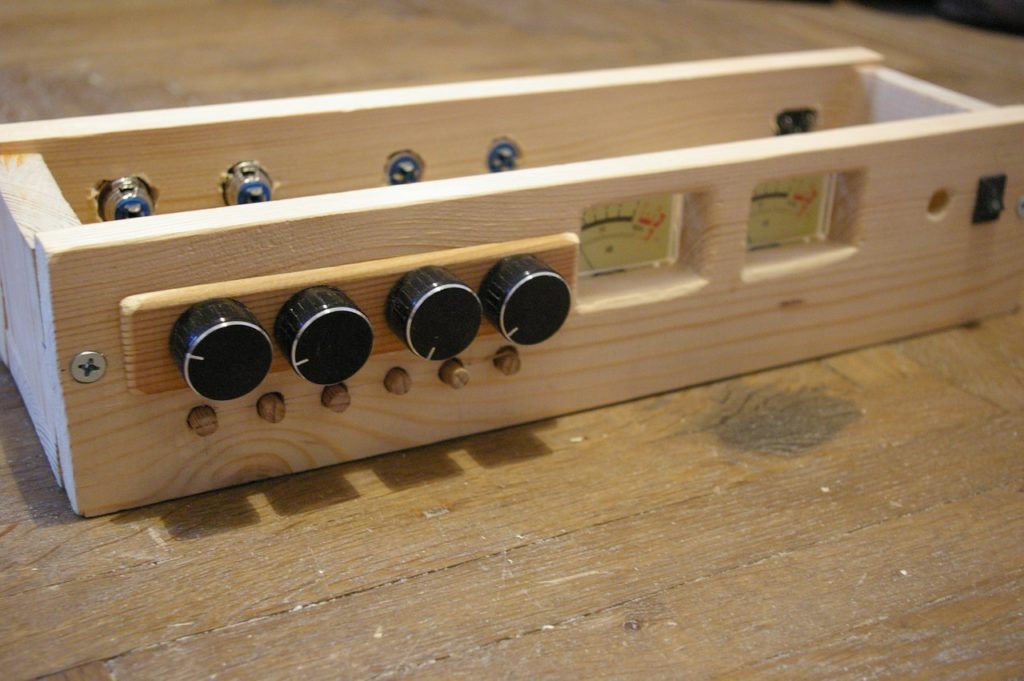 And the final version:
And the final version: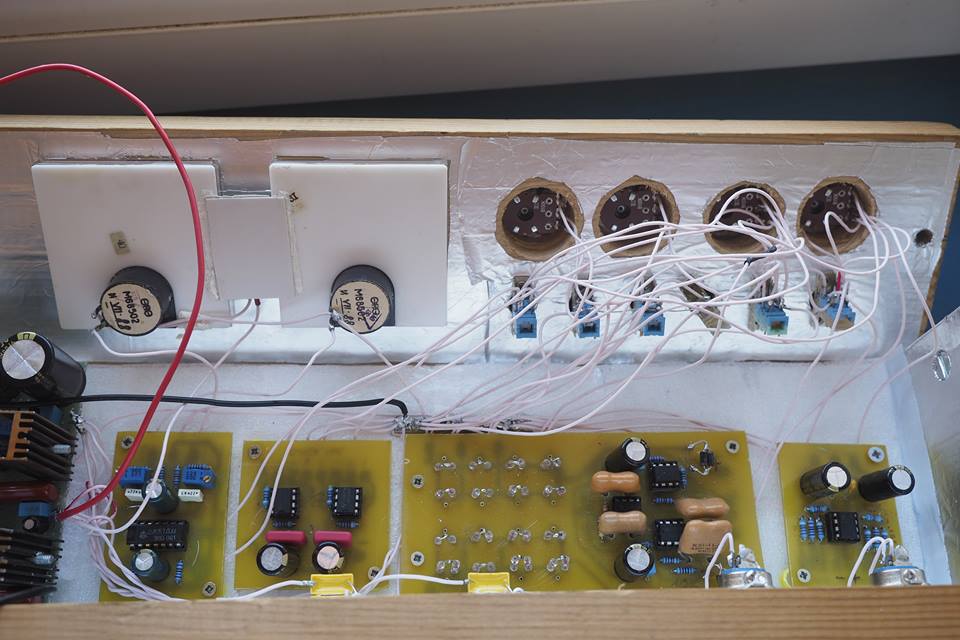
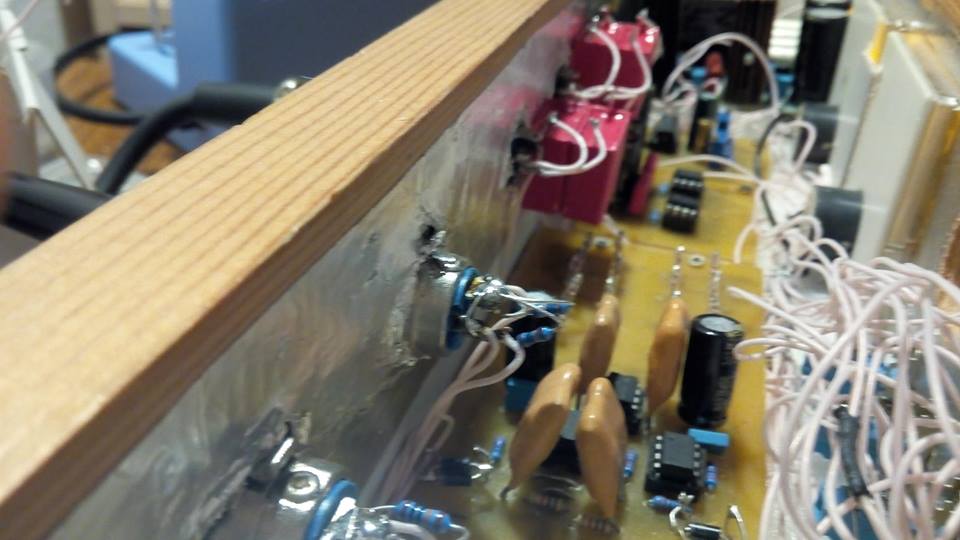
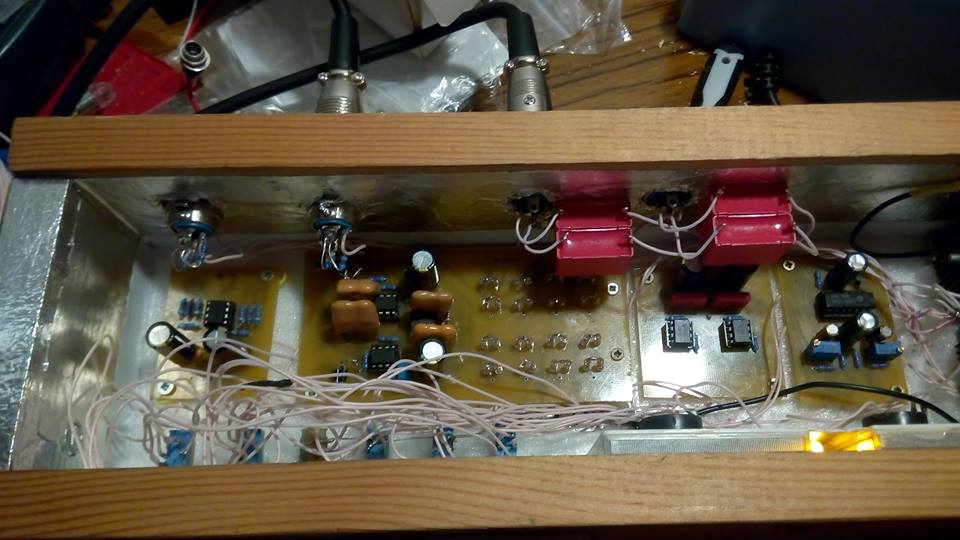
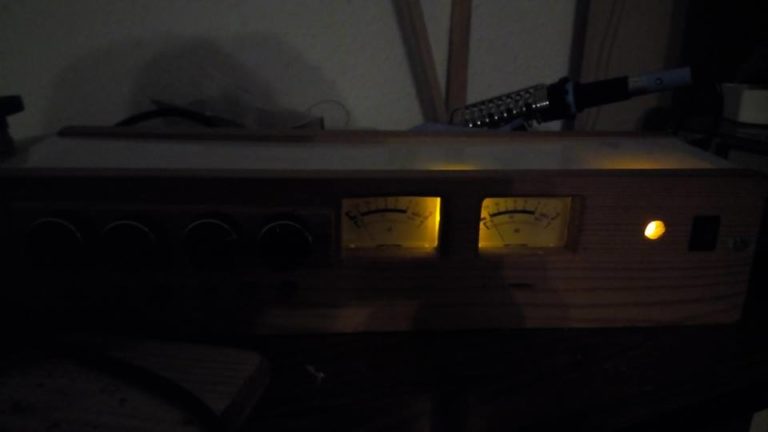
I have decided to increase the number of diodes and to put a switch that would allow you to use different numbers of them. With 3 buttons we have 3 regimes:
- soft saturation – with 2 silicon and 16 germanium diodes for each channel;
- medium saturation – with 2 silicon and 12 germanium diodes;
- hard saturation – with 2 silicon and 8 germanium diodes.
Besides the clipping control buttons there is another one for switching the vu-meter from input to output and 2 more buttons that make the left channel settings to be a master channel which controls both channels.
A power supply was made using LM317/337 voltage regulators that provide +15/-15 V, low Z Hitano ESX capacitors and Schottky diodes with a film capacitor in parallel to them.
Here is the audio demo of this wooden beauty:

